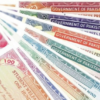
What Happens to Your Body If You Eat Dates Daily for 30 Days?
As Ramadan 2025 starts, millions will break their fasts on dates, an ancient tradition based on science and culture. But how does your body react if you eat dates daily for 30 days? This simple fruit, which is commonly referred to as “nature’s candy,” is a nutritional powerhouse that has the ability to change your health in remarkable ways.
Let’s get into the science-supported advantages of adding dates to your everyday diet and find out how this 30-day date challenge can affect your body.
Nutritional Data of Dates
Dates are more than a sweet indulgence. They are packed with nutrients that the body needs, such as fibre, potassium, magnesium, vitamin B6, and antioxidants. One Medjool date (approximately 24 grams) has around:
- 66 calories
- 18 grams of carbohydrates
- 1.6 grams of fibre
- 0.1 grams of fat
- 0.2 grams of protein
Together, these nutrients offer numerous health benefits, which make dates a great addition to your diet, particularly during Ramadan 2025 when energy and hydration levels are essential.
Advantages of Eating Dates for a Month
Day 1-7: Enhanced Digestion and Gut Health
One of the first changes you’ll notice during your 30-day dates challenge is improved digestion. Dates are an excellent source of dietary fibre, with one serving providing nearly 7% of your daily recommended intake. Fibre is essential for maintaining a healthy digestive system, preventing constipation, and promoting regular bowel movements.
A 2005 study in the Journal of Agricultural and Food Chemistry discovered that dates have both insoluble and soluble fibre, which can promote digestive health by providing nutrients to friendly gut bacteria. This can contribute to a more balanced microbiome, less bloating, and improved nutrient absorption.
Day 8-14: Increased Energy Levels
Dates naturally contain fructose, glucose, and sucrose, which are excellent energy foods. In Ramadan 2025, when fasting contributes to low energy, dates are a ready source of quick and long-lasting energy.
A 2011 article in the International Journal of Food Sciences and Nutrition emphasized how dates are used to replenish glycogen stores in the liver and therefore act as an ideal food to have after fasting. Athletes and gym enthusiasts even make use of dates as a natural substitute for energy gels because they have such a high concentration of carbohydrates.
Day 15-21: Improved Heart Health
By the third week of your 30-day date challenge, your heart might begin to see the advantages. Dates are loaded with potassium, a mineral that controls blood pressure by balancing sodium within the body. A 2014 study published in the American Journal of Clinical Nutrition concluded that eating foods high in potassium can decrease the risk of stroke by as much as 24%.
Also, dates have antioxidants such as flavonoids and phenolic acid, which have been demonstrated to decrease inflammation and lower levels of LDL (bad) cholesterol. These substances lead to healthier cardiovascular systems and a lower chance of heart disease.
Day 22-30: Healthier Bones and Immune System
As you approach the final part of your 30-day date challenge, you might find your bone and immune health improving. Dates are rich in magnesium, manganese, and copper, nutrients all of which are important to help you stay strong and avoid diseases such as osteoporosis.
A 2016 study published in the Journal of Nutrition and Metabolism reported that magnesium consumption is directly related to higher bone density. Also, the antioxidants present in dates can boost your immune system by destroying free radicals and lowering oxidative stress.
More Benefits of Having Dates Daily
Weight Management: Although sweet, dates contain a low glycemic index (GI), releasing sugar slowly into the bloodstream. This can satisfy hunger and curb overeating.
Skin Health: Vitamin C and D in dates stimulate collagen production, resulting in healthier, brighter skin.
Brain Function: Dates contain antioxidants that shield brain cells from damage, which may lower the risk of neurodegenerative diseases such as Alzheimer’s.
How to Use Dates in Your Diet
Throughout Ramadan 2025, dates are historically consumed to break fast, yet dates can be prepared and utilized in a wide range of delicious and innovative ways:
- Chop dates and mix them into oatmeal or smoothies.
- Substitute dates as a sweetener for baked products.
- Serve dates accompanied by nuts as a nutrient-packed snack.
- Fill dates with almond butter or cheese as a savoury-sweet appetizer.
Possible Side Effects of Consume Excessive Dates
While dates are incredibly healthy, moderation is key. Overconsumption can lead to:
- Weight gain due to their high-calorie content.
- Digestive issues like bloating or diarrhoea from excessive fibre intake.
- Elevated blood sugar levels in individuals with diabetes.
Stick to 3-5 dates per day to enjoy their benefits without overdoing it.
Last Words
The 30-day date challenge is not just an experiment in diet; it’s a path to improved well-being. From better digestion and energy to a healthier heart and bones, the advantages of daily consumption of dates are supported by science. With Ramadan 2025 around the corner, consider incorporating dates as a regular food item in your diet and discover the life-changing benefits for yourself.
Whether you’re fasting or just seeking a natural means of improving your health, dates are a tasty and healthy option. So, go ahead and take the challenge and observe what happens to your body when you consume dates for 30 consecutive days.







